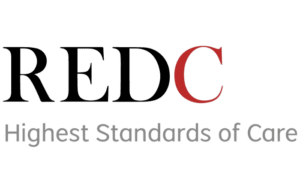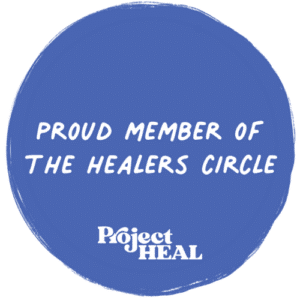As the heat sets in and beach days and barbecues rev up, clothes naturally become more revealing, and parties start centering around food and the grill. Bathing suits, tank tops, short shorts—summer styles may be practical and fun for many, and the food may be celebratory, but what does that mean for someone suffering from an eating disorder?
Summer is also the time when diet culture is pervasive, as advertisers flaunt the latest summer diet crazes and exercise routines. Diet culture encourages dangerous behaviors and habits revolving around body image and restriction¹. Summer can be a difficult time for those struggling with body image and eating disorders, but it doesn’t have to mean you’re going from recovery to relapse. Let’s look at some things you can do to be proactive about maintaining your eating disorder recovery during the summer.
Tips to Help With My Eating Disorder Recovery During the Summer
Here are some tips to help you transition into the summer, handle stressful situations, and protect your recovery:
- Be prepared and maintain a schedule. Planning ahead allows you to stick to your meal plan. The consistency and structure of having a plan give you better chances of dealing with stressful situations. Avoid skipping meals and snacks or letting more than a few hours go by without eating. Bring your own food and snacks with you, so you can stick to the schedule you set for yourself.
- Wear comfortable clothing. It’s challenging for anyone to not worry about their appearance, so wear what you feel best in. There are many lightweight summer clothing options that aren’t uncomfortable or revealing (and won’t compromise on style)!
- Protect your body image. Selfies and social media are popular during the summer as everyone wants to document their vacations and day trips. If seeing yourself (or others) in photos is a trigger, step away and take a break from scrolling. Avoid the things that are damaging to your self-esteem and body image².
Summer Activities to Help with Eating Disorder Recovery
There are many summer activities to participate in, and that’s a good thing. With all the available options, you can be as picky as you want. Focus on choosing activities that are protective of your recovery.
These might include non-food related and self-care activities like outdoor yoga or meditation retreats, a visit to a botanical garden, or a local waterfall. If you like a little more excitement, try an amusement park or a carnival where the rides and games are the focus.
It will be helpful to list the activities you’d like to do during the summer and keep them handy. This way, when you and your friends are feeling bored, you’ve got plenty of ideas that will reinforce your recovery goals.
Ways to Stay Motivated During the Summer to Continue with Eating Disorder Recovery
It takes a lot of commitment to maintain recovery, especially in the face of added stressors and triggers that come with the summer season. This is the time to reach out to your support network (or develop it if you don’t have one already). Surrounding yourself with optimistic people will impact your positivity and help you stay on track. Keep in touch with your therapist, who can help you overcome summertime hurdles and stick to your treatment plan. Plan your activities to have something to look forward to³. Finally, give yourself permission to have fun. You deserve it as much as anyone!
Ways to Handle a Setback in Eating Disorder Recovery During the Summer
Whether you’re at the beginning of your recovery or you’ve been on the journey for a while, setbacks or relapses can occur, and summertime might be one of your triggers. You’ll be way ahead of the game just by realizing that a relapse can happen, knowing your triggers and boundaries, and knowing when to seek help for eating disorders.
Summer is a significant time to reach out to the people you have strong relationships with and let them know you need help. Your loved ones know you are recovering from your eating disorder and can give you the support you need. A setback is also the time to contact a professional for additional counseling and treatment.
Aster Springs offers a variety of treatment options that can help you or your loved one get through the challenges the summer may bring. Find the location nearest you to learn how our highly trained team can provide personalized treatment and support you on your recovery journey.
Resources
- Jovanovski, N., & Jaeger, T. (2022). Demystifying ‘diet culture’: Exploring the meaning of diet culture in online ‘anti-diet’ feminist, fat activist, and health professional communities. Women’s Studies International Forum, 90(1), 102558. https://doi.org/10.1016/j.wsif.2021.102558e. https://www.researchgate.net/publication/357640934_Demystifying_’diet_culture’_Exploring_the_meaning_of_diet_culture_in_online_’anti-diet’_feminist_fat_activist_and_health_professional_communities
- Nestler, A. (2023, January 25). 5 tips for navigating summer with an eating disorder. The Mighty. https://themighty.com/topic/eating-disorders/eating-disorder-recovery-tips-summer/
- National Eating Disorders Association. (n.d.). Turning summertime stress into smiles: 5 ways to cultivate happiness. https://www.nationaleatingdisorders.org/
Author Bio:
Kate Delaney Chen, BSN, RN-BC is a healthcare writer and registered nurse with over 17 years of bedside experience. She specializes in Psychiatric Nursing and Nephrology and currently works at a nationally recognized inpatient Eating Disorders Program.





